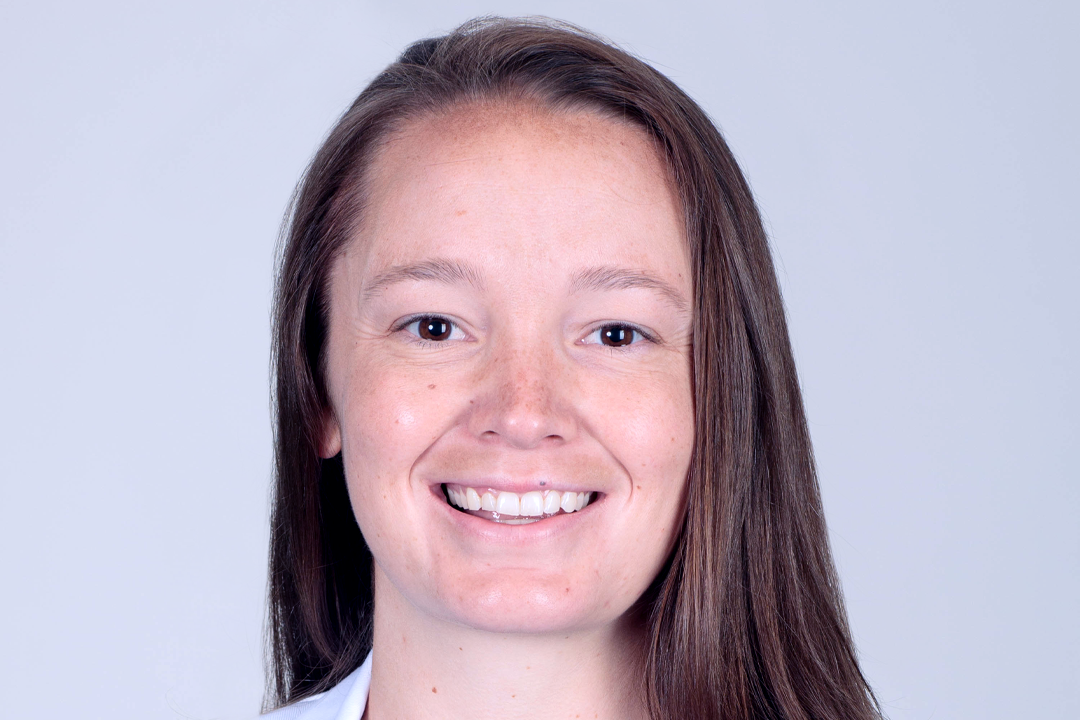Kayla Barnes, RN, B.S.N., is an Army veteran and a 2022 graduate of the Veterans B.S.N. program. After finishing her program and serving as the GW Nursing class of 2022 graduation speaker, she went on to secure a job as a registered nurse in Colorado, and recently took the opportunity to reflect on her nursing journey with us.
Q
What inspired you
to pursue nursing?
A
I served eight years in the U.S. Army as a medic, and I have always felt drawn to a career that would ultimately help others. When I was growing up, I saw my aunt in her nursing career, and I found it inspiring to see the impact that she had on her patients. She treated them like they were her family. Throughout my childhood, and then during my military career, I was just constantly surrounded by compassionate people that devoted themselves to taking care of others by really meeting them where they were, and this is what really drew me into the nursing profession.
Q
Why did you
choose GW?
A
I chose GW because I wanted the best training and education possible because I believe that is what my patients deserve. I remember being stationed in Hawaii and researching nursing programs. I Googled, “Best nursing programs in the U.S.”, and GW popped up. Then, I discovered that GW is also one of the most military-friendly schools. With only one application submitted, I boldly proceeded to move across the country because I was determined to make it into the GW Nursing program. Reflecting back, this was one of the best decisions I have made. GW Nursing sets you up for success by focusing on individualized nursing care and looking at each patient with a different lens.
Q
Describe a memorable experience from your time at GW.
a
One of the most memorable experiences I had at GW was during my pediatrics clinical. My clinical instructor gave me a case study about a hypothetical infant who presented with vague signs and symptoms; and subsequently, they required an extensive work up for multiple rule-outs. I spent days going through my care plan, trying to identify what it could be, what complications could occur, and what I could do as a nurse to prevent those complications. It was one of the most difficult care plans I had done. Then, fast forward into my preceptorship in the NICU, and there I was, admitting a baby who had the same exact case as I had done in my care plan. These are the kinds of things that seem difficult at the time, but when you get in that room with the patient and their family, you just start feeling grateful that you were challenged at a time when there were no risks involved so that you can really help your patients when it matters the most.
Q
What do you find challenging about nursing and how do you overcome it?
A
I think my biggest challenge in nursing school and post-graduation is the frustration of not knowing everything or not having every concept immediately stick. When we were learning about arrhythmias, I remember I was so frustrated with myself because I was having a hard time connecting everything. One of my previous professors told me that I needed to give myself permission to grow and take the time to absorb the information, regardless of the expectations that I have for myself. When I feel myself getting frustrated, I try to remind myself that I won’t always know the answers, and that is okay. As long as the passion to continue progressing and learning is there, I will always be doing the best I can for my patients.
Q
In light of the COVID-19 pandemic, how has your perspective on the power of nursing been altered?
a
With the pandemic, I believe the power of nursing has brought a lot of visibility to how critical the nursing perspective is when considering health policy and patient advocacy. Nurses have been able to witness, first-hand, the disproportionate impacts of COVID-19 in marginalized communities. They have been able to see cracks in the healthcare system and this sets us up to push for policies and changes that create greater equity. We spent a great deal of time in nursing school discussing social determinants of health and how critical it is for us to consider these with each patient that we see. I feel the pandemic has shed a lot of light on social determinants of health, and this has empowered nurses to step forward and push for much needed changes in the healthcare community.
Q
What is your advice
for future nurses?
a
When things get challenging, my advice for future nurses is to do the best you can with what you have, and that is all that you can really do. Our patients really deserve the best from us, and we should be treating them as we would want our own family members to be treated. We should always be working to improve so that our best becomes even better. We have such a unique role, being there for our patients and their families during their most vulnerable moments. Because of that, we should be consistent in seeking out anything that will set them up for success, in and out of the hospital.


